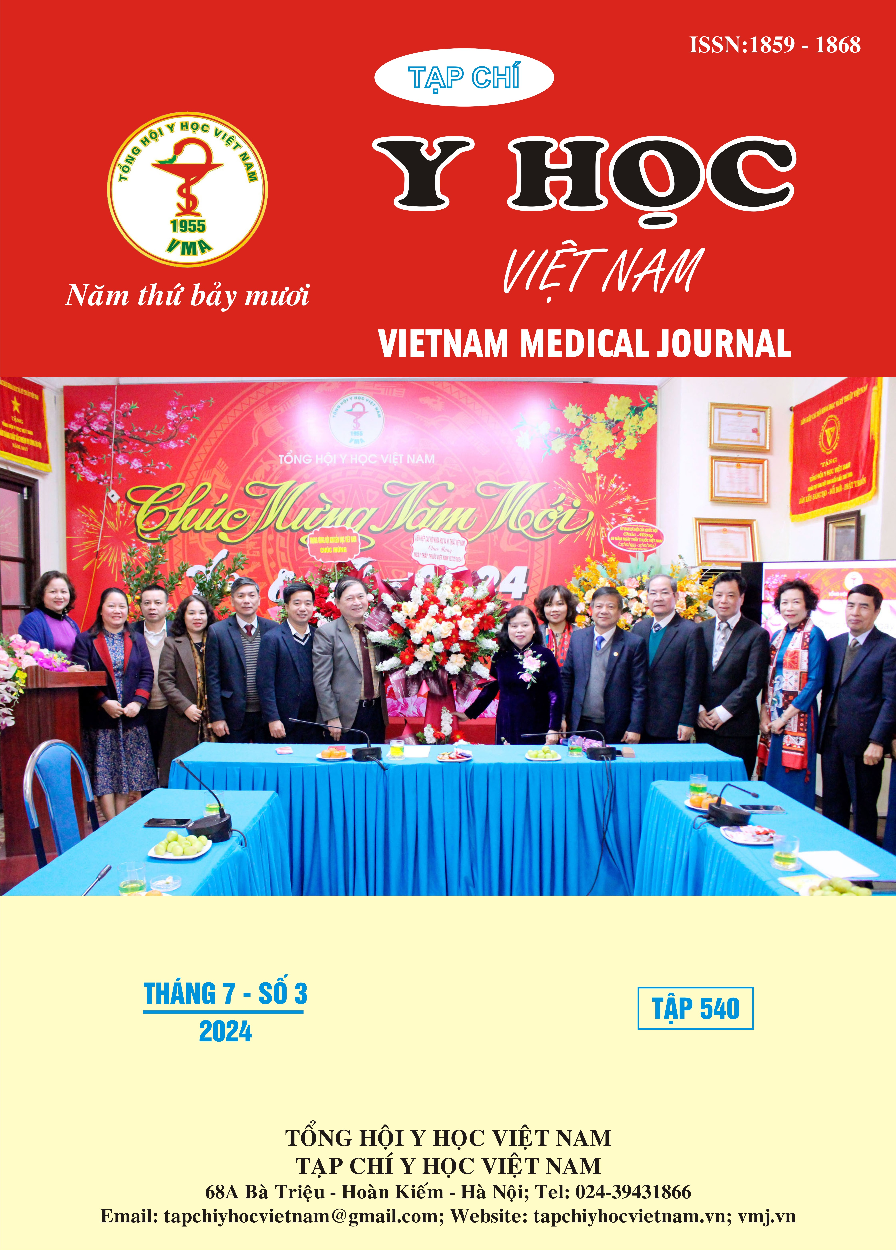USING FAMILY HEALTH HISTORY IN BREAST CANCER RISK ASSESSMENT FOR FAMILIES WITH BREAST CANCER PATIENTS IN VIETNAM
Main Article Content
Abstract
Background: Breast cancer is a common type of cancer and is related to genetics. GSSK supports the management and early detection of breast cancer in families. Objectives: 1. Establish family health histories (FHH) with breast cancer in Viet Nam. 2. Classify breast cancer risk according to CDC for first- and second-degree relatives in families of breast cancer patients in Vietnam. Methods: A cross-sectional descriptive study was conducted on 144 primary breast cancer patients from May to August 2023. FHH information was collected through direct interviews, telephone, or video. FHH characteristics were analyzed, and breast cancer risk was classified according to CDC guidelines. Results: Most FHH included 3-4 generations (89.5%) with an average of 17.11 ± 6.11 relatives. The proportion of patients with first-degree relatives with breast cancer (28.5%) was higher than second-degree relatives (8.4%). Mothers accounted for the highest proportion among affected first-degree relatives (48.6%). After patients developed breast cancer, 78.4% of families were classified as high-risk and 21.6% as moderate-risk according to CDC. Family degree and number of affected relatives were determinants of risk level (p < 0.001). Conclusions: FHH is a useful tool for comprehensively assessing breast cancer risk CDC and identify individuals needing appropriate counseling, screening, and monitoring.
Article Details
Keywords
Family health history, breast cancer, risk assessment CDC.
References
2. Lan, N. T. M. (2020). Nghiên cứu tỷ lệ mắc mới ung thư vú ở phụ nữ Hà Nội giai đoạn 2014-2016 (Luận án Tiến sĩ Y học). Đại học Y Hà Nội.
3. Liaw, Y. Y., Loong, F. S., Tan, S., Chong, Y. L., Madhukumar, P., Yong, W. S.,... & Tan, P. H. (2020). A retrospective study on breast cancer presentation, risk factors, and protective factors in patients with a positive family history of breast cancer. The Breast Journal, 26(3), 469-473.
4. Molina-Montes, E., Requena, M., Sánchez-Cantalejo, E., Fernández, M. F., Arroyo-Morales, M., Espín, J.,... & Sánchez, M. J. (2015). Risk of second cancers cancer after a first primary breast cancer: a systematic review and meta- analysis. Gynecologic Oncology, 136(1), 158-171.
5. Brewer HR, Jones ME, Schoemaker MJ, Ashworth A, Swerdlow AJ. (2017). Family history and risk of breast cancer: an analysis accounting for family structure. Breast Cancer Res Treat. 165(1):193-200. doi:10.1007/s10549-017-4325-2.
6. Sung, H., Ferlay, J., Siegel, R. L., Laversanne, M., Soerjomataram, I., Jemal, A., & Bray, F. (2021). Global Cancer Statistics 2020: GLOBOCAN Estimates of Incidence and Mortality Worldwide for 36 Cancers in 185 Countries. CA: A Cancer Journal for Clinicians, 71(3), 209-249. https://doi.org/ 10.3322/ caac.21660
7. Tran VT, Nguyen ST, Pham XD, et al. 2022. Pathogenic Variant Profile of Hereditary Cancer Syndromes in a Vietnamese Cohort. Front Oncol. Vol 11. https://doi.org/10.3389/fonc.2021.789659
8. Wildin, R. S., Messersmith, D. J., & Houwink, E. J. F. (2021). Modernizing family health history: achievable strategies to reduce implementation gaps. Journal of Community Genetics, 12(3), 493-496. https://doi.org/10. 1007/s12687-021-00531-6


